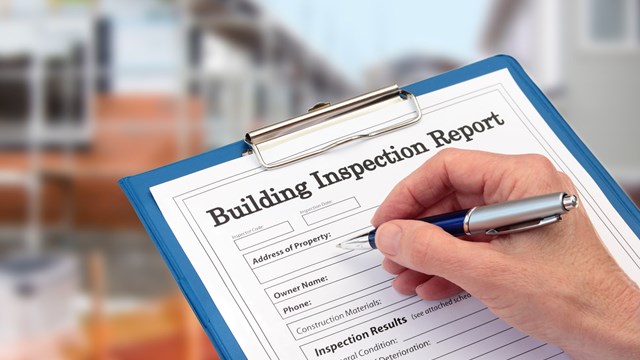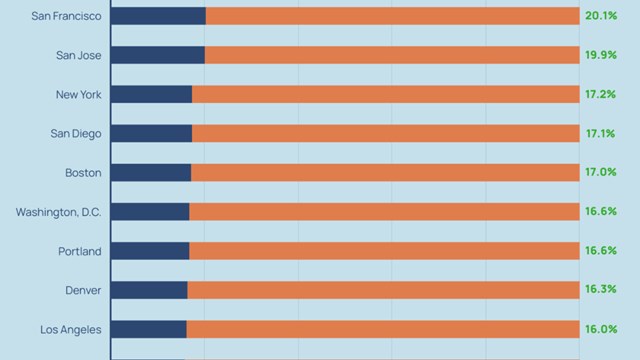They say the only two inevitable things in life are death and taxes. Well, for condo and co-op owners you can add a third—maintenance fees.
As long as roofs are going to have to be repaired, snow is going to have to be plowed, and grass has to be cut, unit owners and shareholders are going to have pay for their share of the cost for maintaining the property where they live.
For the most part, HOA owners know that maintenance fees—and maintenance fee increases—are part of condo and co-op life, and rarely go about staging a coup when the board raises fees. However, boards should take proper steps when increasing fees, keeping their community members informed of fee increases and making clear what the money is for.
Fee Basics
According to Jules Frankel of Wilkin & Guttenplan, an accounting firm in East Brunswick, monthly maintenance fees cover three things: operating expenses for the year (including snow removal and landscaping), management fees, and insurance.
In addition to those purposes, Frankel says associations often set aside additional money in case the association goes over budget. This is known as a replacement or reserve fund, and is used, for example, to cover snow removal during a particularly tough winter.
"So every year you're putting aside [a certain] number of dollars into that fund—usually based on an engineer's recommendation and study," Frankel says.
"Lastly," Frankel adds, "most associations have something called a deferred maintenance fund, which is utilized to set aside money not for replacement, but for maintenance that occurs less frequently than annually."
As an example, Frankel uses the example of a large painting project. If you're going to paint your community's buildings every five years at a cost of $100,000, instead of collecting the entire amount the year the painting will be done, an HOA can instead collect $20,000 per year over the whole five years, then start the next five-year cycle. Spreading out the assessment can be easier on association members than requiring the entire $100,000 to be paid at one time.
Communities can also decide to keep annual operating costs low, and collect special assessments as they are needed. Karl Giulian of GPM LLC, a management company in Stone Harbor, works with many communities with a lot of second-home owners, and says this is a popular method with a lot of the associations he works with.
Proactive, or Reactive?
Buildings and communities also need to decide if they're going to be proactive or reactive when it comes to budgeting and fee increases. According to Giulian, some communities see the need for an upgrade even though things are still operational. Other buildings wait until the roof leaks before making the change. A lot of this, of course, depends on the board.
"Proactive is an association that sees something that's not broken right now, but they want to update things because it's time," Giulian says. "It's either out of style, or it's getting to the end of its useful life. Even though the roof isn't leaking, it's 20 years old, so they decide to replace it—that's proactive. Other buildings will wait until the roof is leaking in three or four units, and then they replace it - that's reactive."
Other times, the market for a product or service dictates how a board must act. According to William Maher, a member of the Rockcliffe Co-op board in Montclair, increased fuel prices are one big reason for fee increases. "We had to prepare for that," he says. "We arranged a contract for the best price of gas we could get at the time. Even so, we had to plan to accelerate the budget by a large amount last year in preparation [for the increases in fuel prices]."
Maher says that his board began working on their association's 2006 budget around this time last July. They arranged a two-year contract, and bought gas in bulk. Now, Maher says, they're locked into a contract price, so they won't be surprised by gas prices for two years. If prices were to go down, it could cost them money, but with prices being what they are, that seems unlikely, and the board members felt it was better to secure a steady price.
"The other surprise that occurs occasionally are maintenance issues," Maher continues, "We're a 60-year-old-plus facility and things sometimes break or require repair sooner than the engineering reports predicted. We haven't had to resort to special assessments, but we have had to increase fees [to keep the reserve fund where we want it]. We're very attentive to that. We had an elevator project where we had to refurbish the motors and controls and so forth. We had a reserve set up for that, but [the need for repairs came about] a few years earlier than we expected."
Informing the Community
Maintenance fees may be part of condo life, but that doesn't mean increases should be sprung on residents by surprise.
"Good associations remember the most important word in association lingo—which is communicate," Frankel says. "Let your members know where things stand, regardless of whether it's finances, or replacements or whatever is happening in your community. The budget is no exception. Most associations have a process where the budget is communicated to the unit owners well in advance of the time that monies will be due."
Maher agrees that clear communication between board, management, and residents is key in getting everyone on the same page with a proposed fee increase. In the case of the Rockcliffe community, Maher says that the board president writes to residents when the budget is resolved—well in advance of the increase's start-date—and puts forth the proposed increase. Owners can ask questions about increases at annual meetings and through other channels. The Rockcliffe board also distributes a quarterly newsletter.
The annual budget will dictate how much in maintenance fees homeowners are going to have to contribute. Associations should prepare their budget within three to five years of the next fiscal year.
"The way they normally do the budget is to look at the history of the current year," Frankel says. "They project what's going to happen through the end of the year, and then they will project any significant increases in cost they are expecting the following year. So if you have a landscaper and you already know that his contract is going up three percent for the next year… you budget for the higher number, not what you paid the prior year."
"We budget on an annual basis," Giulian, says, "and we start our budget cycle for January right around June. So come July and August, we'll have our preliminary numbers for 2007, and that's when we start letting associations know if they'll be a dues increase or no dues increase."
Giulian says he uses e-mail to send preliminary budgets to residents, so that everyone knows early in the process where the budget and maintenance fees are headed. Homeowners are also informed of increases through meetings, other e-mails and regular postal mail.
"Some associations mail out the new budget and new [payment] coupons," Frankel says. Some have an annual meeting at that particular time of year where they tell the unit owners, 'this is what we've budgeted, this is what the new fees are going to be.' Some associations have newsletters, some use e-mail, so the techniques vary."
Homeowner Reaction
Maintenance fees are part of condo life, and they actually make a lot of sense. Just like an individual homeowner has to pay for expenses beyond a mortgage (both day-to-day ones like lawn care, and long-term examples like driveway repair), condo owners have to pay for their share of these projects in a condo community.
Giulian says it's rare for a homeowner to raise serious objections to a maintenance fee increase.
"Most people say, 'We have to operate the building, it is what it is….' People don't get crazy as long as there's some rationale behind it. It's like your taxes - they'll go up, and as long as you have some faith in the politicians and you understand the municipal budget a little bit, you don't get super-upset if it goes up a couple of cents."
It's almost inevitable that some residents are going to say they weren't given fair notice of a maintenance increase. That's why documenting the process is important, Giulian says. If someone makes a complaint, you should be able to point out the notices and e-mails that were sent during the process. One common problem, according to Giulian, is that people don't open the mail they receive from the association.
"With some of our unit owners, it's not as important as their electric bill," Giulian says. "They'll get a notice from us, and you'll hear that they didn't open it, it just sat on their desks for a while because it's not a bill, just a notice. But if you have the right communications and chain of documentation, once the guy screams about his lack of knowledge, you just back it up and he usually calms down."
Frankel says the best way to prevent complaints about maintenance fees is to keep the lines of communication open.
"A board has to be able to explain to its members, how it came up with the budget it came up with," Frankel says. "If there are alternative ways of dealing with something, the board has to communicate that it looked at those alternatives, and why it chose a particular course of action. And the community members have to remember that board members are paying the same fees everyone else is paying and that the board's role is not to be popular or heroes, the board's role is to protect the market values of the units in an association."
Controlling Fees
While it's possible to keep maintenance fees level in some smaller communities that don't have many amenities, Frankel says it's vital that boards set fees at the rate that is best for the community.
"Some boards think they're heroes by keeping maintenance assessments the same, but they're not heroes if it's unrealistic and they're creating deficits for the association," Frankel says. "If you think about life, food prices go up in the grocery store, utility prices go up, gas prices go up—so why would somebody think that the expenses an association faces aren't going to go up? It's illogical."
"There have been times when we've been able to reduce fees," says Maher. "We refinanced one of our mortgages a few years back to a better rate, as a result a bunch of fees went down. Right now we're trying to reinforce our reserve, so there'll be a period of [increases], but in the end, they'll be money for the future, for repairs in the future, like when we have to take care of the roof."
Associations also sometimes seem reluctant to make extra income that would lower maintenance fees. Giulian says he's heard boards discuss offering pool memberships to people outside the association, but he's never seen anyone actually take that step. Ultimately, they decide that it's not worth it because it would make the pool more crowded and is too much of a liability risk.
So maintenance fees aren't going anywhere, communities just can't survive without them.
"When you live in a community, and you have to clear the snow, and pay the insurance and fix the roof, the only people who can pay for that are the people who live there," Frankel says. "It's the same as if you live in your own single-family home, nobody's coming to fix your roof or shovel your driveway."
But, he says, by doing things the right way, you can keep the process relatively painless while still providing for the needs of your community as a whole.
Anthony Stoeckert is a freelance writer and a frequent contributor to The New Jersey Cooperator.







8 Comments
Leave a Comment